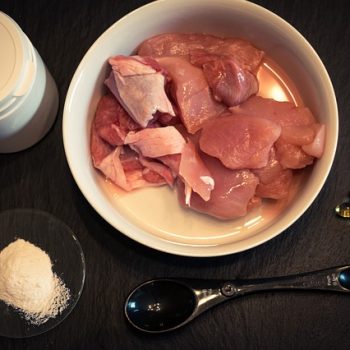Here’s the thing: It’s all about what the supplement is attempting to address, how safe it is for a dog, and the purity of it as well. So, what exactly are you using the supplement for? To address joint problems, digestive problems, balance a home-made diet, or are you adding supplements as a proactive measure?
First thing first. Your dog needs a balanced diet and how you go about doing that is a matter of belief system. For some, it means commercial foods and only commercial foods (no “people food”). In these cases, add supplemental taurine if the food doesn’t include it, and you might need to add a joint supportive supplement (glucosamine with chondroitin for example) if the dog has osteoarthritis, and it’s probably a good idea to add wild salmon oil and a bit of vitamin E as well.
Will this prevent arthritis? My experience suggests that it does, but you’d need double-blind placebo studies over the lifetimes of many dogs before you could say one way or the other. Even then, there would remain the question about how much influence genetics had over the outcome – but yes, my own experience with client’s dogs over these many years prompts me to suggest that if it’s affordable, you might be helping your dog even before old age sets in.
If your feeding choice is a home-made cooked or raw diet that meets the National Research Council (NRC) recommended allowances, you’ll need to fill in nutrient gaps with vitamin and/or mineral supplements where food alone doesn’t do the deed. Other than that, the choice of additional/beneficial supplements are several, but not as many as flood the marketplace. Wild salmon oil if the diet isn’t based on fatty fish, joint supportive supplements (again), digestive enzymes if your dog has some gastrointestinal problem or is older (thereby less efficient at digesting some foods), acidophilus for these same dogs, and CoQ10 if you’re trying to help cognition, kidneys or the heart. I’m for all of them as might be beneficial, but there are plenty more supplements on the market, and in my opinion, most aren’t worthwhile. Basically, the bigger the claim, the less likely I am to believe it. I always start by providing as much nutrition as possible from the foods a dog can eat. Supplements can and do have a place, but people go overboard with them sometimes.
And then we have herbs. A plethora of them, and often given to dogs without medical supervision – big mistake. Not only are there herb to medication interactions and herb to herb interactions, but not all herbs are safe for dogs. Here’s a scary example:
Suspected caffeine and ephedrine toxicosis resulting from ingestion of an herbal supplement containing guarana and ma huang in dogs: 47 cases (1997-1999)
Records of dogs that had ingested an herbal supplement containing Ma Huang and Guarana between July 1997 and October 1999 were retrieved from the National Poison Control Center database.
Results: Most dogs (80%) developed clinical signs of toxicosis within 8 hours of ingestion, and clinical signs persisted for up to 48 hours. Hyperactivity, tremors, seizures, and behavior changes were reported in 83% of dogs: other signs included vomiting (47%), tachycardia (30%), and hyperthermia (28%). Seventeen percent of dogs died.
Conclusion and Clinical Relevance: Accidental ingestion of herbal supplements primarily Guarana and Ma Huang in dogs can lead to a potentially lethal condition that may require detoxification supportive treatment for several days. Most dogs recovered with supportive treatment.
Source: Journal, American Veterinary Association)
Now, you might think your choice of herb is safe and it may very well be, but are you sure? Check with your veterinarian and always keep in mind that herbs are medicines. Nothing more and nothing less.
“Which supplement does my dog need” can’t be answered well unless the person you’re asking knows the diet you’re feeding and what your dog’s health status is. Even in the case of healthy dogs, a healthy dose of caution is a good idea because the canine athlete is one type of animal and the couch potato is another. Supplement regimes should be tailored to suit the individual.

